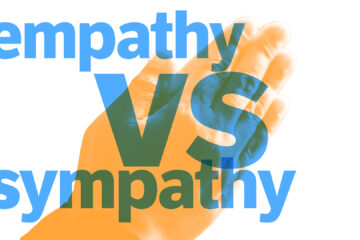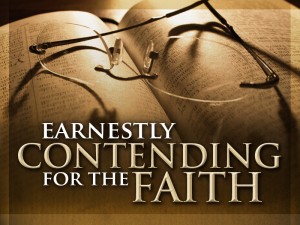Music comes in many forms from the soothing, natural sounds of nature to the grandiloquence of a concert. Most people love to sing their favorite tune even when they know they are off-key. Music moves people of all cultures in a way that is uniquely human. God created us with the gift to enjoy music. The effect that music has on us can sometimes turn the tide of our emotions, bringing us from sad to happy, excited to calm and everything in between. Music allows us to think without thinking and tantalizes the soul. There are academic sciences behind music and how it affects the brain in psychology and neurobiology. In worship, music is a way to connect with God in lifting our spirits as well as giving Him praise. How we utilize this gift in worship is important if we are to deliver to Him what He expects and enjoy its spiritual benefits in the process.
Most churches recognize that music is an important aspect of worship. Almost all denominational churches have an accompaniment of musical instruments as part of their worship service. Many reformed or non-denominational churches see music as important but without the instrumental component. It has been suggested that the Bible is relatively silent concerning the nature and types of music that could be used in worship. Let us see if that is true but first, some history is in order.
Under the old covenant, music was conducted with both singing and instruments such as when King David assigned certain people to that purpose (1Ch. 25:1-7; 2Ch. 29:25-30). David himself played instruments in worshipful praise to God. Singers from the tribe of Levi were not just authorized but commanded to use instruments of worship at certain times to God’s glory (1Ch. 15:16). Even after the Babylonian captivity, the ordinances for the restored temple included singers and Levites to play the instruments (Ne. 12:1-47). The number of references in Psalms authorizing (or commanding) the use of the mechanical instrument of music in praise and worship unto God are numerous (Psalm 33:2, 43:4, 150:1-6 and others) but there were problems. Instruments to some extent were authorized but as the old cliché goes, “Give them an inch…”. More instruments meant less of a focus on God and more on self (Israel in this case).
It is a point of controversy as to whether David’s introduction of instruments in worship was authorized in Amos 6. In his rebuke of the perverted worship of Israel before the captivity of the northern kingdom, the prophet wrote: “Woe to them … that sing idle songs to the sound of the viol; that invent for themselves instruments of music like David” (Amos 6:1, 5). Is the prophet condemning Israel here, David or both?! Adam Clarke, whose scholarly works were produced over a span of forty years, and who likely was the most renowned scholar of the Methodist Church, wrote: “I believe that David was not authorized by the Lord to introduce that multitude of musical instruments into the Divine worship of which we read; and I am satisfied that his conduct in this respect is most solemnly reprehended by this prophet; and I farther believe that the use of such instruments of music, in the Christian Church, is without the sanction and against the will of God; and that they are sinful” (Clarke, p. 684, emphasis original). It is important to be reminded at this point that the purpose of worship is to “praise God” who is Spirit. It is our spirit connecting with His Spirit in all Holiness. The hands of man can do nothing to bring Him praise that equals the truth of the heart, which is what God sees. Why God commanded the use of instruments at all in the OT is not known. One suggestion might be that it was another life lesson demonstrating that the heart of man when given an instruction or freedom is incapable of self-control (Jer. 10:23; Rom. 1:25).
It is a matter of historical record that musical instruments were not used in worship associated with Christianity for several centuries after the church began. “The general introduction of instrumental music [in the church] can certainly not be assigned to a date earlier than the 5th or 6th centuries” (McClintock and Strong, p. 759). Bingham wrote: “Music in churches is as ancient as the apostles, but instrumental music not so: for it is now generally agreed by learned men, that the use of organs came into the church since the time of Thomas Aquinas, anno 1250” (Bingham, p. 315). Even the supreme authority in popular Catholic literature notes: “Although Josephus tells of the wonderful effects produced in the Temple by the use of instruments of music, the first Christians were of too spiritual a fiber to substitute lifeless instruments for or to use them to accompany the human voice” (Catholic Encyclopedia Vol. X, p. 651).
The passages concerning music in NT worship are found in Eph. 5:17-19, Col. 3:16, and Heb. 2:12. Other passages related to singing in general such as when in need are in Mat. 5:13, Rom 15:9, 1Co. 14:15 and Jam. 5:13. In all the observed passages, “singing” (Gk. ᾄδω adō) is the operative word and the fruit of our lips is what is of importance (Heb. 13:15). If we are to worship according to God’s will and purpose, we must understand whether what we are doing in our services corresponds with His word (Eph. 5:17). God’s instructions concerning worship involves teaching, praying, singing, communion and a collection for financial support. The assembly is for the edification of the saints (1Co. 14:14-16). In Eph. 5:19, “…speaking to yourselves in psalms…”, of which there are 150 in which to choose; “…hymns…”, this was likely scripture sung with a melody or other uplifting lyric; “…spiritual songs…”, being words of praise as prompted by a joyous and benevolent spirit. The passage says “…making melody in your hearts…” which some see the Greek word “ψάλλω psallo” which has a literal meaning “to pluck or strike the cords on a musical instrument; to sing praises”, as license to have instruments in worship. Apologetics Press author Eric Lyons says: “When one studies the etymology of this word, he will find that it is incorrect to say that every time psallo was used in antiquity, it meant to play an instrument. By studying reliable Greek lexicons (dictionaries) and various historical documents, one soon comes to understand that the term psallo has had a variety of meanings in different periods of its history. In fact, the evidence indicates that even before Christ came to Earth, psallo no longer meant to play instruments of music.” (Lyons) The object of the “speaking” is at an individual level, everyone should be participating. Col. 3:16 states the same thing. Heb. 2:12 gives us the heart we need to have when singing.
There are no examples of the early church utilizing mechanical instruments in worship for 500 or so years. Not a single example is within the NT. This is not to say that it didn’t occur but it was not an integral and certainly not a commanded part of worship. An argument to this might be, “the Bible does not say we cannot use instrumental music.” which is true but we do not define behavioral doctrine on what the Bible doesn’t say, rather what it does say. “Where God has designated, we dare not add to or take from His word” (Wharton) (Deu. 4:2; Ecc. 3:14; Pro. 30:6; Rev. 22:18). Lack of a specific command does not license us to do whatever we want, however we want, in whatever way we want. This is “will-worship” which is “I will worship God the way that I want”, and not the way that He wants. One of the biggest issues in winning souls to Christ is getting them to take seriously the concepts and purpose of worship. A good band may get them interested but their souls are not oriented towards God but towards themselves, whether they are conscious of it or not.
In conclusion, music is one of the best ways we can connect with God in worship and even day-to-day. We are to be joyful (Psa. 35:9) and sing praises to God and edify one another. Everyone has that favorite hymn that gets them wanting to raise their hands, close their eyes, and move their heads in pious adoration. The songs within our hearts are the praise He seeks. We likewise should fully enjoy the gift of music in our lives and to His glory. We should not forget though that it is all too easy to turn worship into a party or a concert when instruments are introduced. In our limited knowledge of good and evil, we have not mastered the ability to worship God wholly without feeling the irresistible tendency to please ourselves. This fact should not be lightly understood. Of course, for many people today, neither authority in scripture nor the record of history is an issue of consequence. Such people are an authority unto themselves. God asks us to sing, not play to Him. In fearful obedience, we should do precisely what He says to the best of our ability.
References
Bingham, Joseph. The Antiquities of the Christian Church. London: Henry G. Bohn, 1865.
Catholic Encyclopedia Vol. X. New York: Encyclopedia Press, 1933.
Clarke, Adam. Clarke’s Commentary on the Holy Bible. Vol. IV. Nashville: Abingdon, n.d.
Lyons, Eric. http://www.apologeticspress.org/APContent.aspx?category=11&article=868. n.d. Browser. 11 2020.
McClintock, John and James Strong. Cyclopedia of Biblical, Theological, and Ecclesiastical Literature. Vol. VI. Grand Rapids: Baker, 1969.
Wharton, Ed. The Church of Christ. Nashville: Gospel Advocate, 1988.


